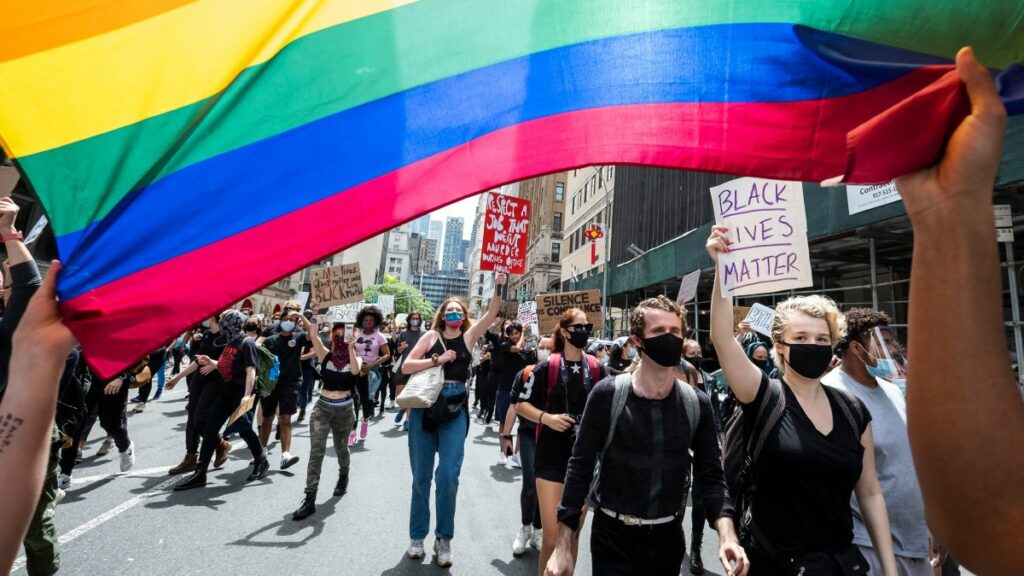Blog Post
How the sexual revolution became our new religion (and other stories)
A roundup of news and commentary from around the interwebs.
***
A cancer patient in British Columbia was pushed towards euthanasia. As our society drifts further from a Judeo-Christian belief in the sanctity of human life, we will be seeing much more of this.
***
Over at Unherd, Ed West has an essential essay titled “The West’s cultural revolution is over.” I’m not quite as optimistic as he is—I think this is going to metastasize into something pseudo-totalitarian before it has runs its course—but he makes a number of fantastic insights. For example:
The past 50 years or so have seen a cultural revolution in western society comparable in scope to the Reformation. Most of us have known only that period of transition, when morality and norms were up for debate, but perhaps it is now over. Perhaps we have returned to the sort of world we lived in when England last reached a final, in 1966 – a world of strictly enforced social mores…
Relativism is a position you employ when you’re weak, to be abandoned when you win. On a wide range of issues, including race and gender, the Right has been more relativist for some time. Before the 1968 revolution those outside of power (the Left) argued for moral relativism, those in power (the Right) argued for moral absolutism. Now it is the opposite. Even things like claims to absolute truths (“trust the science”) have changed. Likewise with censorship, which is by definition a tool of the powerful.
I’ve thought of this often. Relativism is not only unsustainable as a worldview (having one’s feet “planted firmly in mid-air,” as Francis Beckwith liked to say), but it was also a ruse. The revolutionaries always had their own rigid, dogmatic beliefs—they just had to achieve power before they’d say so. They trumpeted a false neutrality, which was abandoned the moment they could. As Al Mohler has frequently noted, society was once organized around revelation—and now it is being organized around revolution. More:
This is not some dark new age of cancel culture, however, it’s just a return to normality. Those who grew up in the late 20th century were living in a highly unusual time, one that could never be sustained, a sexual and cultural revolution that began in 1963 or 1968. But it has ended and, as all revolutionaries must do after storming the Bastille, they have built Bastilles of their own. The new order has brought in numerous methods used by the old order to exert control — not just censorship, but word taboo and rituals which everyone is forced to go along with, or at least not openly criticise. You might call it the new intolerance, or woke extremism, but all societies need the policing of social norms…
No one would satirise the transgender movement today; no one would dare point fun at BLM, or Pride month; no one would dare joke about George Floyd, because like the publishers of Gay Times in 1977, they might face jail for blasphemy. Instead leading satirist Sacha Baron Cohen makes a living making jokes at the expense of the little people. Indeed the only satire made now pokes fun at the old establishment, like punching the corpse of a once-ferocious zoo animal, or the people who still hold the old beliefs; the elderly, the less educated, the rural and provincial. The powerless.
The Nineties and Noughties were a time of outstanding comedy partly because so much of public morality was up for grabs, and in transition; it was a period in between two quite rigid societies.
A sign of how the environment has changed can be seen in the changing tone of the word“controversial”. The term once had a neutral, or even positive, undertone, to denote cutting-edge artwork that challenged us. Now it is used entirely by the media to denote a policy or position they disapprove of, and which you are therefore supposed to disapprove of. It means something beyond the pale of acceptable opinion, a pale that has shrunk as the cultural revolution has ended, illustrated by neologisms like “problematic”.
Read the whole thing. It’s well worth your time.
***
Also at Unherd, Douglas Murray has a sobering column titled “How Twitter Ruined Everything.” As Twitter is my primary social media vice, plenty of this struck home.
***
Interestingly, Facebook’s data shows that right-wing content consistently out-performs progressive content on its platform—much to the dismay of many FB staffers.
***
More soon.








